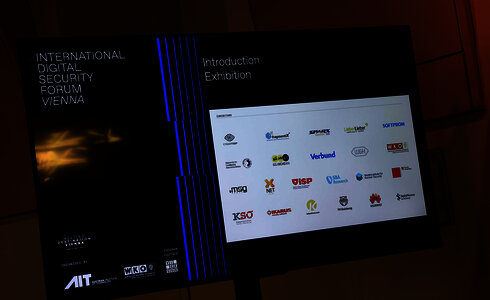Can digital sovereignty be infrastructured?
Never in history has it been clearer than today: digital infrastructures, from the physical ones (submarine cables, data centers, internet exchange points) to the “logical” ones (protocols such as IP or algorithms such as Google’s PageRank) are crucial components in arrangements of power.
“Digital sovereignty”, “technological sovereignty”, “internet sovereignty” – especially since the former NSA contractor Edward Snowden disclosed the pervasive practice of digital surveillance, these different terms have increasingly been put forward to convey the idea that states should “reaffirm” their authority over the internet and protect their citizens, institutions, and businesses from the multiple challenges to their nation’s self-determination in today’s digital sphere.
According to this principle, sovereignty depends on more than supranational alliances or international legal instruments, military might or trade: it depends on locally-owned, controlled and operated innovation ecosystems, able to increase states’ technical and economic independence and autonomy.
Presently, digital sovereignty is understood primarily as a legal concept and a set of political discourses. As a consequence, it is predominantly analyzed by political science, international relations and international law. However, the study of digital sovereignty as a set of infrastructures and socio-material practices has been, so far, largely neglected.
Filling the gap
My talk has outlined a research agenda aimed at filling this gap. I have suggested that, as the “digital sovereignty” label is increasingly mobilized by both practitioners and scholars of internet and digital governance, a perspective grounded in science and technology studies (STS) and more specifically in infrastructure studies is a useful and yet underdeveloped theoretical and methodological innovation that allows to examine the co-development of material, institutional, and territorial components of digital sovereignty.
The digital in “digital sovereignty” is ultimately a matter of situated and embedded materials that are of interest to politics and its scholars, and that specialists of technology and its sociology can contribute to untangle.
According to many commentators, the quest for digital self-determination will be a central geopolitical issue in the coming decade. “Digital sovereignty” is an increasingly crucial component not only of states’ internet governance strategies, but of the very essence of their founding principles such as territoriality and authority.
Public and private actors worldwide are making a case that (digital) sovereignty is necessary to protect fundamental societal “goods” including economic prosperity, security, and culture.
New paradigms
The concept of digital sovereignty is expected to acquire even greater relevance in the coming years, with widespread deployment of technologies such as the Internet of Things and artificial intelligence. This requires to develop not only new governance solutions, but also innovative knowledge paradigms.
The systemic transformations brought about by the “digital sovereignty wave” worldwide, in its variety of instantiations, must also be addressed as sets of practices of social ordering, intimately linked to how humans and organizations build, develop, use, co-opt and resist digital infrastructures.
(Zusammenfassung des Vortrags im Zuge des International Digital Security Forums (IDSF) in Wien, Juni 2022)
Dieser Beitrag ist im OVE Informationstechnik-Newsletter, Schwerpunkt Social Media, erschienen. Diesen Newsletter, veröffentlicht im Juni 2022, finden Sie hier als Gesamtdokument.
Wenn Sie auf dem Laufenden bleiben wollen, melden Sie sich hier für den Newsletter an.

CNRS, France
Francesca Musiani, 2022, “Infrastructuring digital sovereignty: a research agenda for an infrastructure-based sociology of digital self-determination practices”, Information, Communication & Society, 25(6), “Independence: #AoIR2021 special issue”, p. 785-800. DOI: www.tandfonline.com/doi/full/10.1080/1369118X.2022.2049850





